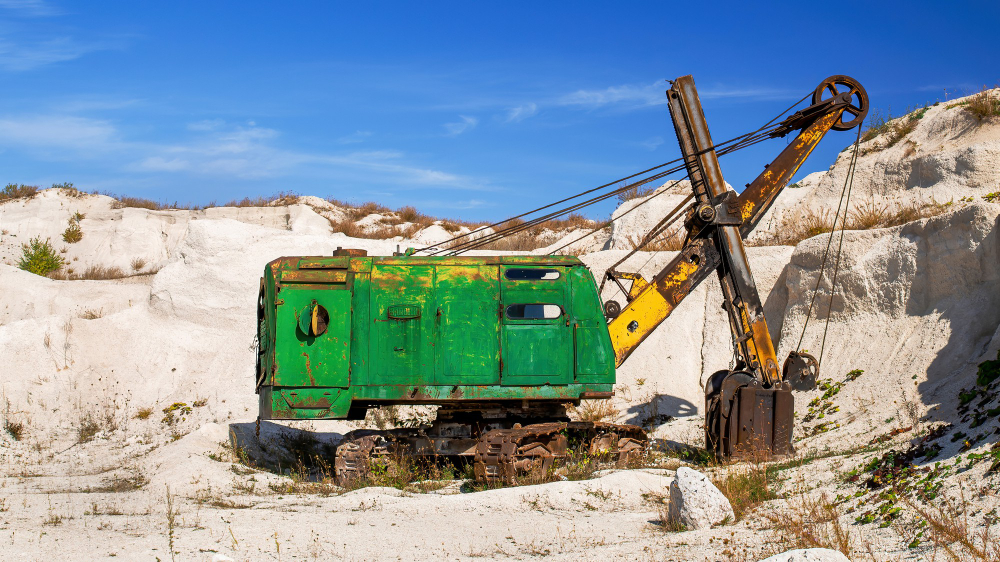The Role of Quarrying Equipment in Modern-Day Operations

Quarrying has come a long way from the days of manual extraction and simple tools. Today, the industry relies on advanced machinery to process aggregates with speed, accuracy, and safety. From crushers that handle massive boulders to screening plants that separate materials by size, quarrying equipment plays an essential part in every stage of production. Modern equipment not only increases productivity but also supports sustainable practices by reducing waste and energy use.
The Foundation of Modern Quarrying
At the heart of every quarry operation is the machinery used to break down rock and mineral deposits. These machines are the foundation of the entire process. Crushers, for instance, are designed to reduce large chunks of stone into smaller, more manageable sizes suitable for further processing. Jaw crushers are often used for primary crushing, while cone and impact crushers handle the finer stages. Each type of crusher has a unique role, depending on the material being processed and the desired output.
Washing and screening plants also play a key part in turning raw material into usable aggregates. Washing removes unwanted clay, dust, and impurities that could compromise the quality of the final product. Screening, on the other hand, separates material by size to meet different construction or industrial needs. Together, these systems deliver consistent, high-quality results that meet strict industry standards.
Efficiency and Productivity in Modern Operations
Efficiency is a defining factor in modern quarrying. With the rising demand for aggregates in construction and infrastructure projects, equipment must handle larger loads and operate longer hours without interruption. Modern quarrying plants are designed for continuous use, featuring automated systems that monitor performance and adjust operations in real time.
Equipment mobility has also transformed the industry. Portable crushers and screening plants allow companies to set up temporary sites near specific projects, cutting down on transport costs and improving turnaround times. These mobile units are especially useful for contract work, where flexibility and speed are key advantages.
Automation and digital control systems are now standard across many aggregate plants. Sensors and monitoring tools help operators track wear, output, and performance metrics. This data-driven approach not only improves efficiency but also reduces downtime caused by unexpected breakdowns.
Sustainability and Environmental Considerations
Sustainability is becoming increasingly important in the minerals and quarrying industries. Modern equipment is designed with this in mind, offering energy-efficient engines and cleaner processing systems. Many washing plants now use water recycling units to reduce consumption, and advanced dust suppression systems keep air quality high around working areas.
Recycling also plays a growing role in the aggregate sector. Mobile crushing and screening equipment can process demolition waste into reusable materials, cutting down on landfill use and supporting circular economy principles. For many companies, adopting these sustainable practices also improves their reputation and aligns with modern construction standards that favour environmentally responsible sourcing.
Equipment Hire and Contract Services
Not every company needs to own its machinery outright. Hiring quarrying equipment offers a practical alternative, particularly for short-term projects or seasonal work. Hiring allows access to the latest models without the long-term costs of maintenance and storage. It is also ideal for testing new technologies before committing to a purchase.
Contract work is another area where professional quarrying companies add value. By outsourcing operations to a specialist team, clients benefit from expert handling, reduced risk, and predictable costs. Contract crushing, screening, and washing services are popular among construction and mining firms that prefer to focus on core activities while leaving the processing to experienced professionals.
The Importance of Servicing and Maintenance
Keeping equipment in top condition is essential for smooth operations. Regular servicing prevents breakdowns and prolongs the life of machines. In a demanding environment like a quarry, where machinery operates under heavy loads and abrasive conditions, preventative maintenance is key to avoiding downtime.
Many suppliers now offer full-service packages that include scheduled maintenance, repairs, and spare parts. This support helps operators keep production consistent while focusing on meeting their project deadlines. A well-maintained plant not only operates more efficiently but also consumes less fuel and produces fewer emissions, contributing to both cost savings and sustainability goals.
The Future of Quarrying Equipment
The quarrying industry continues to evolve as technology advances. Automation, remote monitoring, and even artificial intelligence are shaping the next generation of aggregate processing. Fully integrated systems will soon allow operators to control multiple machines from a single dashboard, improving coordination and reducing labour requirements.
Electric-powered and hybrid machinery are also expected to become more common, reducing reliance on fossil fuels. These innovations will make quarrying cleaner, quieter, and more efficient, helping the industry meet the growing demand for construction materials in a responsible way.
Final Thoughts
Modern quarrying relies on a combination of strength, precision, and adaptability. The right equipment not only drives productivity but also supports safety, sustainability, and long-term growth. Whether through ownership, hire, or contract services, having access to advanced quarrying machinery gives companies the flexibility to meet market demands and maintain high standards of performance.
From crushing to screening and washing, every piece of equipment has a role in shaping the materials that build our roads, bridges, and cities. As technology continues to advance, the quarrying industry will remain a cornerstone of modern development, supported by equipment designed to keep pace with progress.



